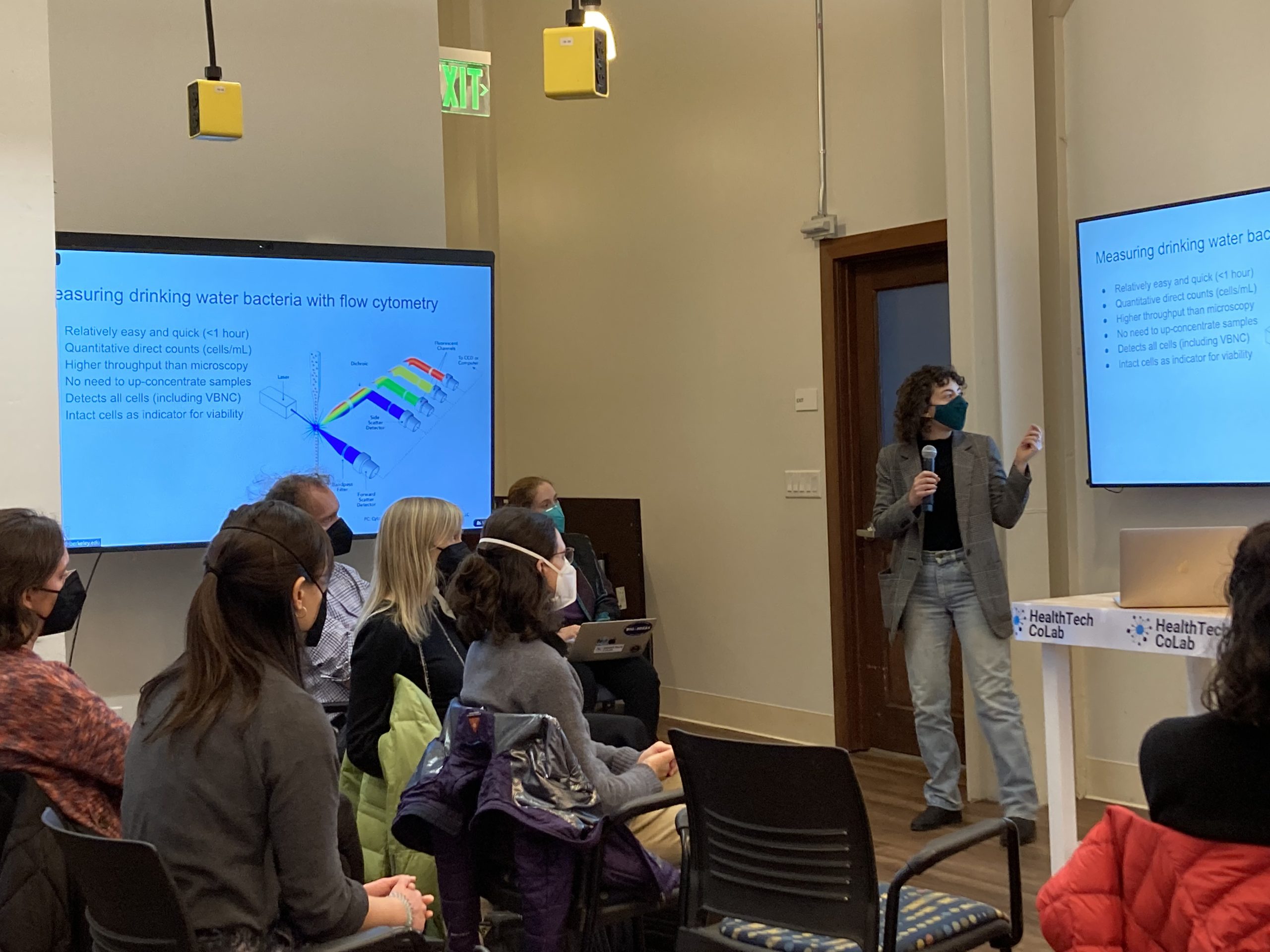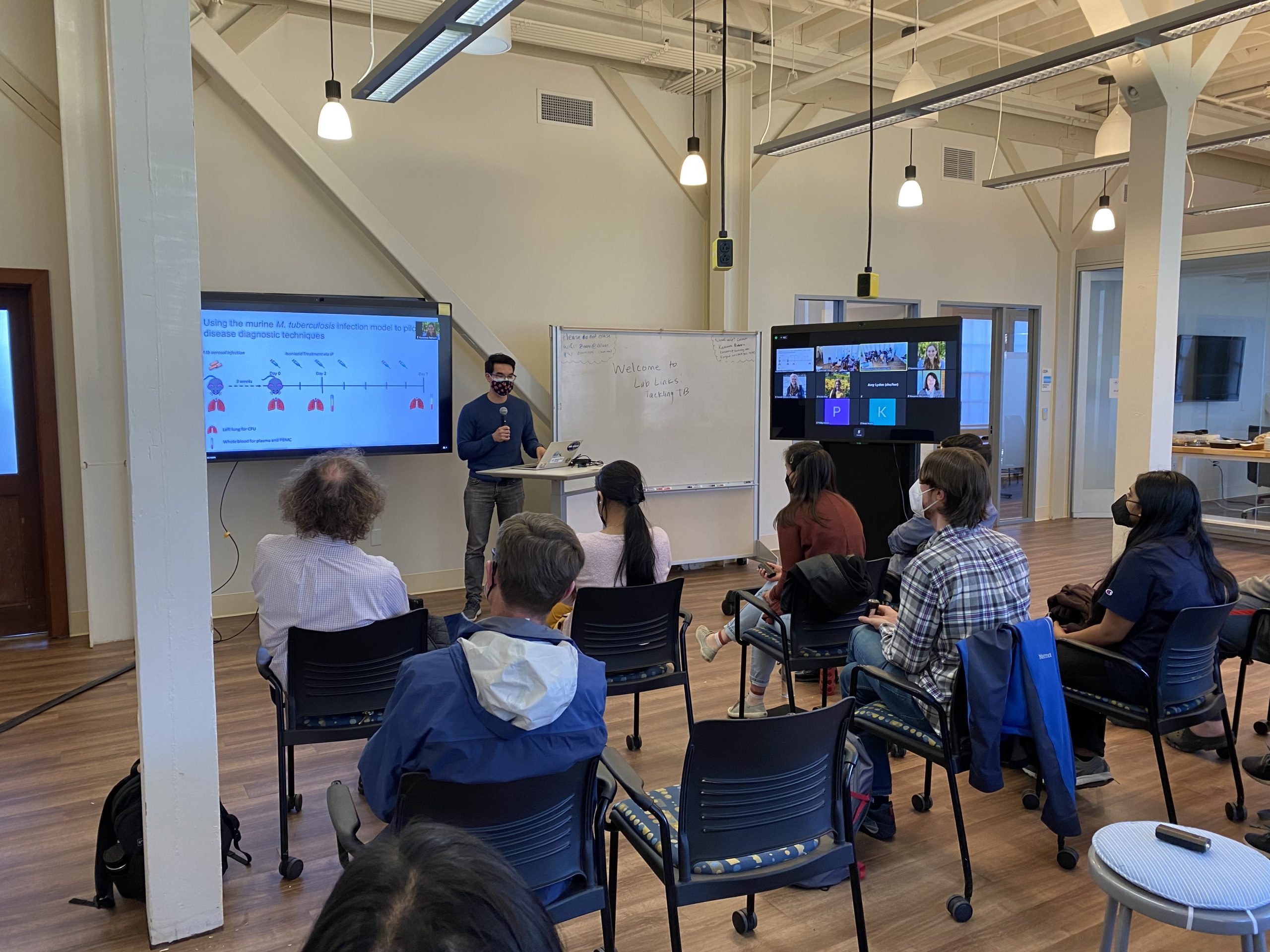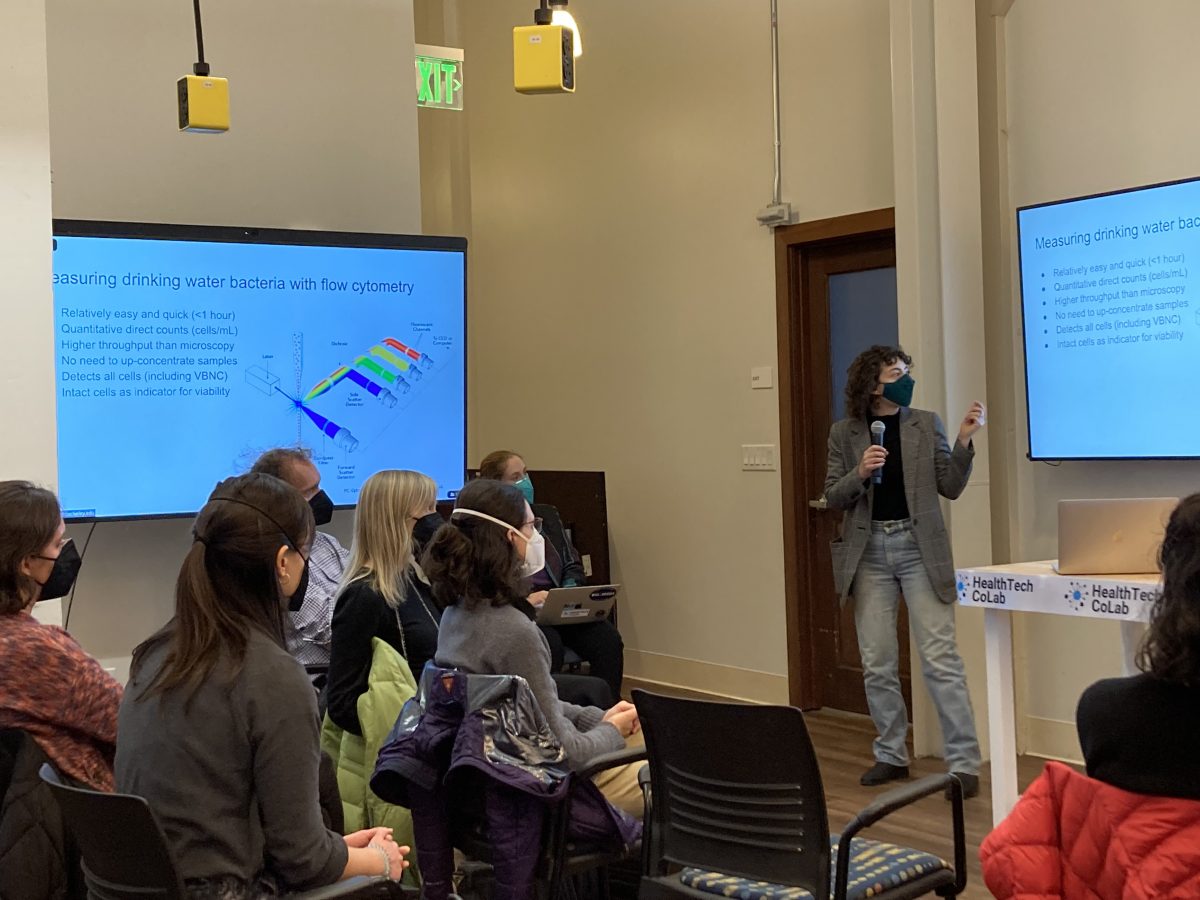By Alisha Dalvi
How do research labs at the best public university in the world share insights and learn from each other? Through Lab Links!
UC Berkeley is home to hundreds of world-class research laboratories — each staffed by faculty and students driven by curiosity to produce new knowledge. These labs are dynamic organizations within the larger UC Berkeley campus, focused on conducting experiments, collecting data, and translating their work for the benefit of the world. To facilitate and advance the work of like-minded labs across campus, Lab Links is a new program to sponsor presentations and discussions among labs working on topics with similar characteristics.
Lab Links is hosted by the Health Tech CoLab, a collaboration-centered initiative housed at the Blum Center for Developing Economies. Lab Links is part of Blum Center Faculty Director Dan Fletcher’s goal of bringing together faculty and researchers working on important problems who may not have crossed paths. This community-building event “connects faculty while providing educational opportunities for graduate students and networking in a unique format,” says Karenna Rehorn, manager of the CoLab.
So what happens at each event? Graduate students from disciplines ranging from bioengineering to public health to molecular and cell biology share three slides summarizing their work to an audience of other UC Berkeley researchers they don’t know. Topics vary widely — from presentations on environmental diagnostics to tuberculosis to antibiotic-resistance bacteria — and each event pulls in unique attendees and speakers ranging from the School of Public Health to the School of Optometry to the Berkeley Water Center. Each presentation is followed by a Q&A, shifting the atmosphere to a group discussion where professors and graduate students gain insights and connections to add to their research. This lightning-presentation-to-informal-conversation sequence is repeated for each research lab in attendance, typically three labs per event. Following the presentations, there is time for networking and socializing.

Lab Links helps researchers working in different departments form collaborations between labs — all in furtherance of their own unique research goals.
Along with staying up-to-date on the work of other labs, this collaborative environment allows researchers to share tips, research practices, and contacts. “It’s an opportunity for networking, information exchange, and skill exchange,” says Rehorn.
At the first Lab Links, focused on environmental diagnostics, Amy Pickering, assistant professor in Civil and Environmental Engineering and Blum Center Distinguished Chair in Global Poverty and Practice, connected with one of Prof. Fletcher’s graduate students to help with a project in his lab. Fletcher’s lab needed samples of Soil-Transmitted Helminth (STH) eggs. STH refers to intestinal worms which are transmitted through human feces and are common in areas with poor sanitation and hygiene. Fletcher’s lab needed these real eggs from human samples to help optimize imaging and develop machine-learning algorithms to automatically recognize the eggs in images. The overall goal was to expand the number of diseases that the LoaScope, a cell phone–based microscope developed by Fletcher’s lab, can diagnose. This is one of many examples of the Lab Links vision in action — cross-lab communication increasing resource accessibility.

The topic of conversation for each Lab Links depends on many factors. For one, it has to facilitate interdisciplinary discussion, pulling in researchers across departments. But there is also a need-based element as well. Amy Lyden, a graduate student in Fletcher’s lab, helps organize Lab Links by developing the theme and then recruiting labs to talk about it. With tuberculosis being one of the top three infectious diseases in the world, and still insufficiently researched in therapeutics and diagnostics, Lyden felt that it was important to have the second Lab Links centered around TB.
The theme must also highlight the ongoing work and accomplishments of labs on campus. Sarah Stanley and Jeff Cox, both professors of pathogenesis, are principal investigators of labs focusing on tuberculosis. This made TB the perfect topic for addressing the needs of public health while featuring relevant Berkeley labs and providing them a platform. “Each Lab Links is about bringing people who are thinking about the needs with people who are thinking about technology and engineering,” says Lyden.
Future Lab Links? Rehorn has big goals for the event series, aiming to grow and diversify the audience to encourage even more amazing discussion. She hopes to incorporate academic grant opportunities in future Lab Links events ,where researchers can collaborate and combine projects, put together a proposal on mutual projects, and hopefully receive funding to further their research.
In order to improve networking, information exchange, and skill exchange, Rehorn emphasizes the importance of pulling together more interdisciplinary labs.
“Professor Fletcher articulated an ambitious vision — to bring together a variety of disciplines so that each researcher can learn from each other and gain new perspectives,” Rehorn explains. “And their collective work can bring about new knowledge in many different areas for the benefit of the world.”
